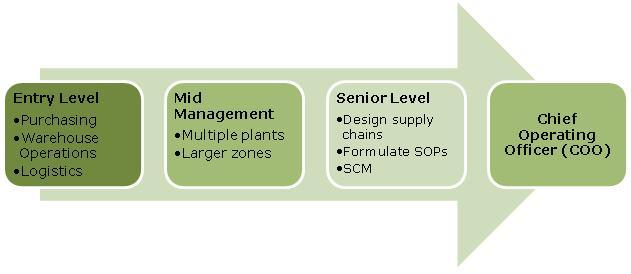Any discussion about operations or supply chain management is incomplete without a mention of the Apple iPhone – so let’s begin with this. 🙂
An iPhone is a truly global product – its parts are manufactured in China. Its apps are designed in North America and India, and it retails in 14 countries across the globe. The secret behind this is Apple’s vast and well-managed supply chain. In fact, Apple has topped Gartner’s Supply Chain Top 25 rankings for the 6th consecutive year. The other companies that have topped this list – McDonald’s, Amazon, Unilever and Intel – belong to very different industries.
Thus, operations is one of the core functions and success pillars of any business, be it manufacturing or services. This function deals with the production and delivery of the product or service that the organization offers. The gamut of operations covers everything from the acquisition of raw materials or resources to the design and optimization of systems and processes.
Career tracks in Operations Management
This field has many interesting career tracks, where upward movement can be quite rapid if you are a strong performer. After majoring in operations, you can work either as a consultant or with the operations team of individual companies.
Operations Consulting:
As a consultant, you would work in an operations consulting firm in any of their verticals such as retail, pharma & healthcare, hi-tech or automotives. You would work with different clients, advising them on operations strategy and supply chain management. We have already discussed the scope and options in this field in our previous blog on consulting.Operations Management
In the operations function of a particular company, you would typically start out as a manager in Purchase, Logistics or Warehouse Operations. You may work at either a single plant, or multiple plants in a single region. A starting designation could be, for instance, ‘Purchase Manager at Godrej & Boyce’ or ‘Logistics Manager at LG Electronics’.Let’s take a look at each of these functions:
Purchasing:
As a Purchase Manager you would need to gather requirements from various divisions in the company, identify and evaluate vendors, negotiate terms with them on the basis of technical and commercial considerations, procure the necessary licenses, coordinate with the finance department for payments and ensure that purchase orders are processed on time.Logistics:
This involves managing the inbound and outbound movement of materials and finished goods. For instance, the transportation of raw material from suppliers to the manufacturing plant, the movement of intermediate products to the next level of processing, the transportation of finished goods to warehouses for storage and the distribution of these goods from the warehouses to the retailers. Thus, logistics managers would need to coordinate with transporters/carriers, negotiate contracts, manage costs, and ensure that transport across borders happens smoothly.Warehouse Operations:
Involves forecasting demand & supply, managing inventory levels and flow, optimizing the utilization of space within a warehouse and managing the warehouse personnel.Operations Management is a field where job rotation is quite frequent – so you may find yourself moving between these functions for a few years. At a mid-management level, your responsibilities may expand to include multiple plants and/or larger regions. You would also be involved in optimizing processes, improving productivity and even some process re-engineering. At a senior leadership level, you would get the opportunity to design and set up supply chain functions from scratch, formulate standards and operating procedures, and be responsible for an entire supply chain.
Operations is a good area in which to start your career if you want to enter consulting or general management at a later stage. A fine example of this is Apple CEO Tim Cook. An alumnus of Duke, he has a strong operations background and is credited with the streamlining of Apple’s supply chain.


